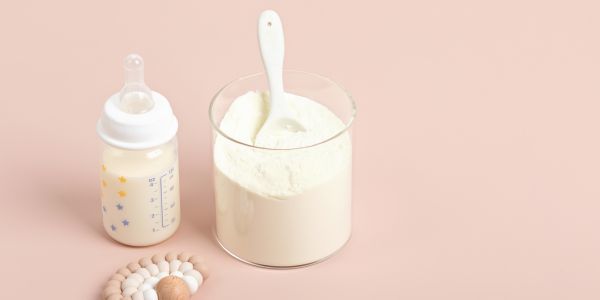

We’re so excited by the latest news from Public Health England regarding the HPV Vaccine!
The team over at PHE have sent over the good news for us to share – this information could be very handy for anyone who is unaware of the HPV vaccination, and keen to learn more.
- HPV16 and 18 infection rates are below 2% in 16 to 18-year-old women
- Prevalence of HPV6 and 11 – which cause 90% of genital warts – has halved
- This is a result of high HPV vaccine uptake. Eleven million doses have been given to young women in England, with 83.9% coverage in year 9 girls
Cancer-causing HPV16 and 18 infections are now extremely uncommon in young sexually active women in England, after the introduction of HPV (human papillomavirus) vaccination in 2008.
These HPV infections were found in less than 2% of 16 to 18-year-old women between 2014 and 2018, new data from Public Health England (PHE) shows. In a sample of 584 young women tested in 2018, no HPV16 or 18 infections were detected at all, which is absolutely incredible! This is a HUGE drop in figures from 2008, when over 15% of young sexually active women were found to have a HPV infection!
Cervical cancer is currently the most common cancer in women under 35 – around 850 women a year die from this.
HPV causes 99% of cervical cancers, and types 16 and 18 are responsible for approximately four in five cases. This virus can also cause anal and penile cancer and some types of head and neck cancer, so it isn’t just women who are at risk.
The prevalence of HPV6 and 11 – which can also cause 90% of genital warts – also fell for the first time in 16 to 18-year-old women, from about 7% to 10% between 2010 and 2017, down to 4% in 2018. These figures are so promising!
Dr Vanessa Saliba, Consultant Epidemiologist, Public Health England, said:
“This is clear evidence of the success of our immunisation programme, which continues to achieve high coverage. With millions of young women protected by HPV vaccination, we expect to see big reductions in cervical cancer in years to come and the introduction of the boys’ programme will accelerate this progress. I encourage parents of all eligible girls and boys to ensure they take up this potentially life-saving vaccine when offered.”
Health Minister Nicola Blackwood said:
“Thousands fewer women and men will be diagnosed with cancer as a result of the HPV vaccination programme and declining infection rates. Our world-leading vaccination programmes are vital in protecting young children and preventing the spread of a host of awful diseases. It’s incredible to think that this vaccination is helping us eradicate cervical cancer for good.”
The national HPV vaccination programme was introduced for girls in 2008 and extended to boys in 2019. The current vaccine protects against HPV16, 18, 6 and 11.
The prevalence of three other cancer-causing types of HPV virus – HPV31, 33 and 45 – has also reduced, indicating that the vaccine provides substantial cross-protection for other types.
The first dose of the HPV vaccine is offered to 12 and 13-year-olds in year 8 at secondary school, and the second dose is given routinely anytime between six to 12 months after. Two doses are needed to be fully protected from the HPV virus.
The latest Public Health England statistics show that 83.9% of year 9 girls had received both doses in 2018/19. Eleven million doses of the vaccine have been given to eligible young women in England, meaning over 80% of women aged 15 to 24 are protected from HPV.
Did you miss your vaccine when you were offered it at school? You should talk to your GP to arrange getting caught up without delay. You will remain eligible until your 25th birthday.
Of course, it is important that women who have had the HPV vaccine still attend their cervical screening when invited as the vaccine does not protect against all types of the virus, so getting checked will cover all bases.
Professor Peter Johnson, NHS national clinical director for cancer said:
“Eligible people should go and get this vaccine, which has been incredibly successful in driving down infections that cause cancer, and which is a potential life saver for millions of young women and men, protecting them from a range of cancers.
Thanks to a range of action set out in the NHS Long Term Plan and the new way of screening for cervical cancer which is now in place across the country, we hope that cervical cancer can be eliminated altogether, building on recent progress which has seen record-high cancer survival.”
Robert Music, Chief Executive, Jo’s Cervical Cancer Trust:
“It is fantastic to see the effectiveness of the HPV vaccine among young women, hopefully this will lead to significant reductions in cervical cancer diagnoses. Ensuring uptake remains high must remain a priority and this new data will hopefully encourage such action. We must not forget that the vaccine does not prevent against all HPV types and there is still a risk of cervical cancer among those who have had the vaccine. Cervical screening remains the best way to further reduce this risk.”
Athena Lamnisos, CEO, The Eve Appeal:
“It is very encouraging to see such a decrease in high risk HPV. Strong evidence which shows that the vaccination programme is an effective prevention tool. We hope that HPV rates will continue to fall with the roll out of vaccination to boys. In the years to come we should see a knock-on effect in the reduction of not only cervical cancer, but other cancers where HPV is the key risk factor. These include vulval and vaginal cancer. It is important that everyone with a cervix still attends their cervical screening appointment, as not all high-risk HPV strains are covered by the vaccine. It is with the vaccination and screening programmes together that we have the power to spot the earliest signs of cell changes as well as prevent cervical cancer.”
Real HPV Stories
Emily’s Story
Emily Doyle, 26, from Stoke-on-Trent, was diagnosed with cervical cancer in 2017 aged 24 after her first smear test result was abnormal. She was devastated, as a mum of two young kids. She needed a hysterectomy to treat her cancer. She’s now all clear and is definitely going to ensure that her son and daughter both have the HPV vaccine.
She said:
“My first ever smear test resulted in me being diagnosed with cervical cancer. I was devastated. However going for my smear test when I was invited at 24 meant that my cancer was picked up early so it was treatable. I had a hysterectomy to treat it, and it’s still hard knowing that I can’t have any more children. I’m so lucky to have a son and a daughter and to be here for them, and I will definitely make sure that they both have the HPV vaccine when they’re old enough. I want to encourage other parents to ensure your children get this vaccine as it’s so effective. You could stop your children from going through what I did.”
Karen’s Story
Karen, 29, from London was diagnosed with cervical cancer aged 24 and given the 5-year all-clear in December.
Karen’s cancer was caused by HPV18. She was slightly too old to have the vaccine when it was introduced and went to an STI clinic and GP surgery when she started bleeding between periods and after sex. She was diagnosed with stage 1b grade 3 cervical cancer and required surgery to remove the tumour.
Karen has been running the Ask Eve information service at The Eve Appeal for just over three years. She also does stand-up comedy to try and make the subjects of HPV and gynaecological health accessible and encourage people to go for screening.
She said:
“I was slightly too old to have the HPV vaccine when it was introduced and was diagnosed with cervical cancer at 24. My cancer was caused by HPV type 18, one of the four strains included in the vaccine and one of the strains that along with HPV 16, causes most cervical cancers.
“The vaccine and screening programme saves thousands of lives each year by preventing cervical cancer. If you are a parent, please don’t ignore the letter from your child’s school offering the vaccine. My parents would have jumped at the chance to prevent my cancer.”
Emily’s Story
Emily Doyle, 26, from Stoke-on-Trent, was diagnosed with cervical cancer in 2017 aged 24 after her first smear test result was abnormal. She was devastated, as a mum of two young kids. She needed a hysterectomy to treat her cancer. She’s now all clear and is definitely going to ensure that her son and daughter both have the HPV vaccine.
She said:
“My first ever smear test resulted in me being diagnosed with cervical cancer. I was devastated. However going for my smear test when I was invited at 24 meant that my cancer was picked up early so it was treatable. I had a hysterectomy to treat it, and it’s still hard knowing that I can’t have any more children. I’m so lucky to have a son and a daughter and to be here for them, and I will definitely make sure that they both have the HPV vaccine when they’re old enough. I want to encourage other parents to ensure your children get this vaccine as it’s so effective. You could stop your children from going through what I did.”
Karen’s Story
Karen, 29, from London was diagnosed with cervical cancer aged 24 and given the 5-year all-clear in December.
Karen’s cancer was caused by HPV18. She was slightly too old to have the vaccine when it was introduced and went to an STI clinic and GP surgery when she started bleeding between periods and after sex. She was diagnosed with stage 1b grade 3 cervical cancer and required surgery to remove the tumour.
Karen has been running the Ask Eve information service at The Eve Appeal for just over three years. She also does stand-up comedy to try and make the subjects of HPV and gynaecological health accessible and encourage people to go for screening.
She said:
“I was slightly too old to have the HPV vaccine when it was introduced and was diagnosed with cervical cancer at 24. My cancer was caused by HPV type 18, one of the four strains included in the vaccine and one of the strains that along with HPV 16, causes most cervical cancers.
The vaccine and screening programme saves thousands of lives each year by preventing cervical cancer. If you are a parent, please don’t ignore the letter from your child’s school offering the vaccine. My parents would have jumped at the chance to prevent my cancer.”
Love from Katie & Team BBY. Xx


.png)







